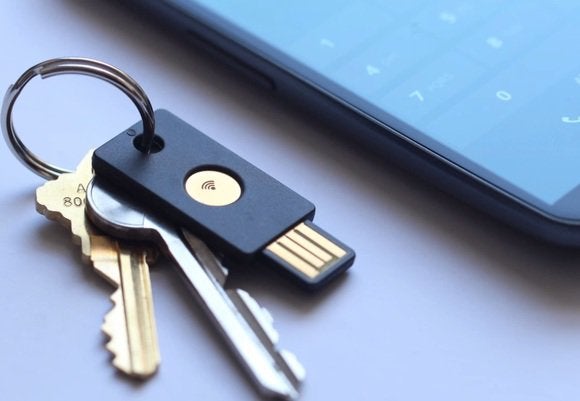
[ad_1]
Protecting your private information isn’t simply good today—it’s a necessity. As the world grows increasingly linked, your non-public information turns into increasingly helpful. Whether it’s utilizing leaked information from web site breaches to hack into your different accounts or holding your private laptop ransom for cash, malicious evildoers received’t hesitate to smash your day if it places earnings of their pockets.
All will not be misplaced although. Following some fundamental safety rules may help shield you from a lot of the assaults you’ll discover on the World Wild Web. Better but, these 5 simple safety duties ought to take solely a short time to get arrange. Do them now and sleep simpler at night time.
Further studying: Be safe! How I set up a ‘Paranoid PC’ to surf the risky web
1. Use a password supervisor
On of the largest safety dangers today is password reuse. Major web sites and providers report huge information breaches on a surprisingly common foundation. If you’re utilizing the identical e mail and password for a number of accounts, and any of these accounts leak, attackers can hack into your different ones utilizing the data.
Using robust, distinctive passwords for each account you personal protects in opposition to that—however memorizing a distinct random password for each web site you create an account for is subsequent to inconceivable. That’s the place password managers are available in. These instruments can create robust randomized passwords for you, retailer the data, and mechanically fill in login fields on web sites and software program alike. Browsers are beginning to provide fundamental password administration instruments too. They work in a pinch, and also you shouldn’t feel ashamed about using Chrome’s password manager over nothing, however aren’t good enough overall. Investing in a correct password supervisor is properly price it (particularly as a result of many providers provide a free tier).
Our information to the best password managers may help you discover the right match on your wants.
2. Enable two-factor authentication

The FIDO Alliance’s U2F open commonplace lets appropriate USB key drives and different small units simplify two-factor authentication.
Most main providers now provide a two-factor authentication function, particularly in the event that they deal with extra delicate private information. Turn it on each time you may. If a hacker does one way or the other handle to achieve entry to your login data, 2FA can nonetheless save your bacon.
Two-factor authentication requires you to verify your account two methods earlier than you’re in a position to log in: with one thing , and one thing you will have. The “something you know” is your username and password. The “something you have” comes courtesy of a certified instrument you will have in your possession. Usually, 2FA requires you to enter a code that’s both despatched to you by way of textual content message or e mail while you attempt to log in on a tool for the primary time, or to seize a code from a supported 2FA app, or join a safety machine dedicated to account authentication. The actual technique varies by service, and plenty of provide a number of 2FA choices. Without that code, hackers can’t break into your account even when they’ve your login data.
Some providers, together with Google accounts, are switching to passwordless “passkey” authentication that supercharge safety with no need 2FA, however that expertise continues to be in its early adoption days. Microsoft and Apple have additionally committed to adopting passkeys in time.
Our two-factor authentication guide explains the idea extra deeply, and contains our picks for one of the best 2FA apps and {hardware}. Uber was hacked as a result of an worker was tricked into sharing their 2FA code, nevertheless—even with two-factor authentication lively, be sure you aren’t sharing these essential codes with anyone else.
3. Stay secure with safety software program
Now that your on-line accounts are locked down, it’s time to show our consideration to safety on your private laptop. You don’t need malware secretly siphoning off your data when you’re banking or shopping your medical historical past, in any case, whereas ransomware can lock you out of your laptop fully till you pay a bounty.
That’s the place safety software program is available in. Yes, you continue to need to run antivirus and a firewall even in 2024. Good information, although: The Microsoft firewall that ships with Windows 10 and Windows 11 will get the job achieved simply high quality today, whereas the Windows Security instruments that come bundled with the working system (together with antivirus) now offer surprisingly good antivirus protection. Better but, they’re enabled by default in Windows if you happen to aren’t working a third-party various.
You nonetheless might need to run paid-for safety software program, as these suites provide rather more than mere antivirus safety today—you’ll additionally obtain instruments that shield in opposition to malicious adverts and emails, extra superior firewalls, household safety for a number of units, VPN entry, and extra. We recurrently consider safety software program, and our information to the best Windows antivirus suites can stroll you thru the highest choices. Use one thing although, even when it’s simply Windows Security.
4. Don’t use a Windows admin account

You can’t set up software program or run elevated permissions with a typical account, however that’s an excellent factor for safety.
Here’s one of many greatest under-the-radar safety professional suggestions round: Don’t use a Windows administrator account day-to-day. Instead, use a secondary commonplace account.
Loads of malware tries to sneak itself in your system. Only administrator accounts can set up software program in Windows. If you’re utilizing a typical account, you received’t be capable of enable a rogue program onto you PC by chance (a minimum of not simply). For one of the best safety, set up your computer with all the software you need utilizing an admin account, however then use a secondary commonplace account to go about your enterprise basically life. It’s very simple to modify over to your administrator account shortly when you have to set up one thing new.
And positively set your family and friends up with commonplace accounts if you happen to’re sharing your laptop with others. This Microsoft help page explains find out how to create accounts in Windows 10.
5. Back up your information
Finally, backing up your information is an underappreciated however very important side of your safety toolkit. If a virus does handle to breach your laptop’s defenses, having a complete backup may help you restore any misplaced information, and probably provide help to sidestep ransomware bounties.
There’s no single method to again up your information. Some individuals take “images” of all the working system, others depend on on-line backup providers, and a few of us merely drag key recordsdata over to external hard drives on the reg. Any technique works so long as you’re doing one thing!
We’ve acquired a number of sources that may provide help to arrange a knowledge restoration plan, together with guides to the best Windows backup software and the best online backup services. We’ve additionally rounded up the top free backup services, and have a information explaining how one can back up your data for free utilizing built-in Windows instruments. Using free instruments usually require a extra patchwork, intensive course of than the user-friendly premium choices, however hey—they work.
Editor’s observe: This article is periodically up to date, most just lately to replace the intro and embody related new hyperlinks and information all through.
[adinserter block=”4″]
[ad_2]
Source link